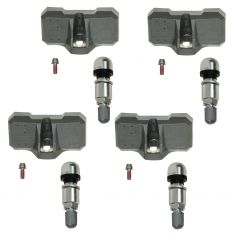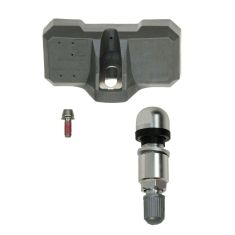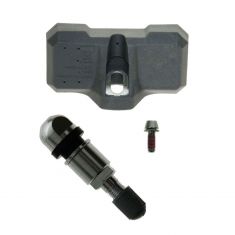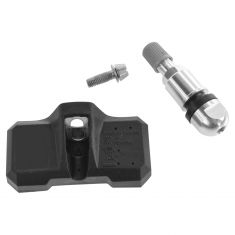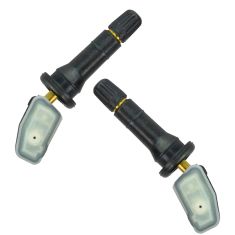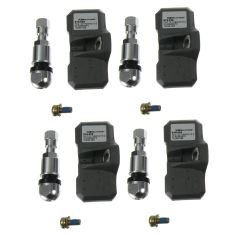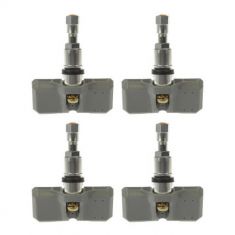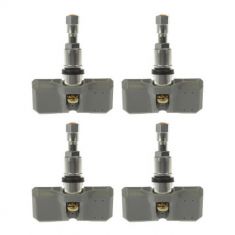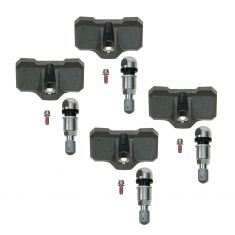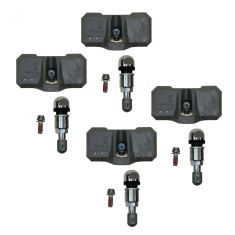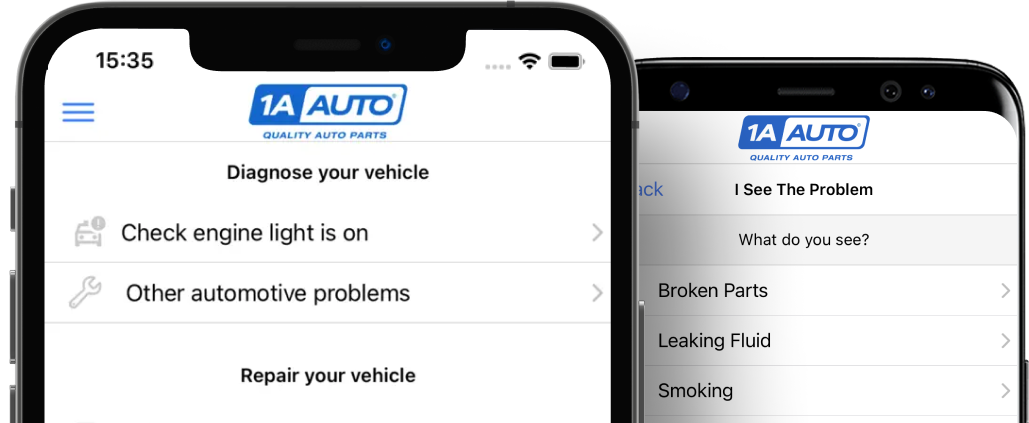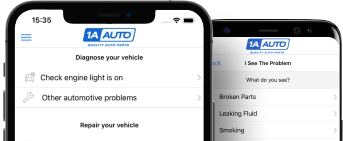Tire Pressure Monitoring System Sensor
-
-
- Air Deflectors & Valance Panels
- Battery Trays & Related
- Body Panels
- Bumpers & Related - Front & Rear
- Convertible Tops, Soft Tops, & Parts
- Decal & Stripe Kits
- Emblems & Nameplates
- Engine Compartment Trim
- Frame Parts & Bushings
- Fuel Door Parts
- Fuel Tank Filler Neck
- Grille
- Header Panel
- Hood & Hatch Lift Supports
- Hood Latch & Catch Brackets
- Hood Release Cable
- Jack Pads
- Radiator Supports
- Rust Repair Panels
- Splash Shields & Fender Liners
- Tailgate Cables
- Tailgate Hinges & Related
- Weatherstripping
-
- Car Covers
- Exterior Lighting
- Exterior Parts & Accessories
- Exterior Safety & Security
- Exterior Storage
- Fender Flares
- License Plate Brackets & Frames
- Mud Flaps & Splash Guards
- Nerf Bars, Side Steps, Running Boards
- Radio Antenna
- Rain Deflectors
- Roll Bars, Light Bars, & Related
- Roof Rack
- Skid Plates
- Spare Tire Carriers & Related
- Spare Tire Covers
- Tire Care
- Tonneau Covers
- Tow Hooks & D-Shackles
- Towing Accessories
- Trailer Hitch & Components
-
- Accelerator Pedal Pad
- Auto Carpet
- Brake Pedal Pad
- Clutch Pedal Pad
- Console Parts
- Dash Pad Cover
- Dash Vents
- Floor Mats & Liners
- Horns & Horn Parts
- Interior Parts & Accessories
- Mirror - Interior Rear View
- Seat Cover and Sets
- Seat Heater Kits
- Seat Parts and Accessories
- Sun Visors & Related
- Trunk & Cargo Parts
-
- Accelerator Pedals & Sensors
- Alarms, Control Modules, & Remote Start
- Cruise Control Switch & Lever
- Electrical Parts
- Hazard Switch
- Ignition Key Lock Cylinder
- Ignition Switch
- Keyless Entry Remote & Related
- Neutral Safety Switch
- Parking Assist Cameras & Monitors
- Power Mirror Switch
- Power Seat Switches
- Power Window Switch
- Radio, Navigation, Entertainment
- Reverse Light Switch
- Trunk Release & Lock Solenoids
- Turn Signal Switches and Levers
- Windshield Wiper Switch
-
- Idler Arm
- Pitman Arm
- Power Steering Hoses
- Power Steering Oil Cooler
- Power Steering Pressure Sensor
- Power Steering Pump
- Power Steering Pump Cooling Fan
- Power Steering Pump Pulley
- Power Steering Pump Reservoir
- Steering Dampers
- Steering Knuckles and Spindles
- Steering Rack and Gear Boxes
- Steering Shafts & Couplers
- Steering Wheels & Column Parts
- Tie Rods & Adjusting Sleeves
-
-
-
-
44
5
10
10
-
Notify When Available
Replaces Tire Pressure Monitor Sensor Assembly 4 Piece Set Dorman OE Solutions 1ATPK00009
Brand: Dorman OE Solutions - 1ATPK00009$159.95Save 29%List $224.95 Save $65.00Brand: Dorman OE Solutions - 1ATPK00009$159.95Save 29%List $224.95 Save $65.00 -
Notify When Available
Replaces Tire Pressure Monitor Sensor Assembly Dorman OE Solutions 974-009
Brand: Dorman OE Solutions - 974-009$52.45Save 24%List $68.95 Save $16.50Brand: Dorman OE Solutions - 974-009$52.45Save 24%List $68.95 Save $16.50 -
Notify When Available
Replaces Tire Pressure Monitor Sensor Assembly Dorman OE Solutions 974-017
Brand: Dorman OE Solutions - 974-017$37.03Save 60%List $91.95 Save $54.92Brand: Dorman OE Solutions - 974-017$37.03Save 60%List $91.95 Save $54.92 -
Notify When Available
Replaces Tire Pressure Monitor Sensor Assembly Dorman OE Solutions 974-043
Brand: Dorman OE Solutions - 974-043$65.45Save 32%List $95.95 Save $30.50Brand: Dorman OE Solutions - 974-043$65.45Save 32%List $95.95 Save $30.50 -
Notify When Available
Replaces Chevrolet GMC Buick Cadillac Tire Pressure Monitor Sensor Assembly 2 Piece Set ACDelco ACTPK00001
Brand: ACDelco - ACTPK00001$138.95Save 38%List $222.95 Save $84.00Replaces Chevrolet GMC Buick Cadillac Tire Pressure Monitor Sensor Assembly 2 Piece Set ACDelco ACTPK00001
Brand: ACDelco - ACTPK00001$138.95Save 38%List $222.95 Save $84.00 -
Notify When Available
Replaces Hyundai Kia Tire Pressure Monitor Sensor Assembly 4 Piece Set Dorman OE Solutions 1ATPK00035
Brand: Dorman OE Solutions - 1ATPK00035$149.95Save 27%List $204.95 Save $55.00Replaces Hyundai Kia Tire Pressure Monitor Sensor Assembly 4 Piece Set Dorman OE Solutions 1ATPK00035
Brand: Dorman OE Solutions - 1ATPK00035$149.95Save 27%List $204.95 Save $55.00 -
Notify When Available
Replaces Honda Acura Tire Pressure Monitor Sensor Assembly 4 Piece Set Dorman OE Solutions 1ATPK00036
Brand: Dorman OE Solutions - 1ATPK00036$149.95Save 35%List $228.95 Save $79.00Replaces Honda Acura Tire Pressure Monitor Sensor Assembly 4 Piece Set Dorman OE Solutions 1ATPK00036
Brand: Dorman OE Solutions - 1ATPK00036$149.95Save 35%List $228.95 Save $79.00 -
Notify When Available
Replaces Honda Element Odyssey Tire Pressure Monitor Sensor Assembly 4 Piece Set Dorman OE Solutions 1ATPK00037
Brand: Dorman OE Solutions - 1ATPK00037$154.45Save 39%List $253.95 Save $99.50Brand: Dorman OE Solutions - 1ATPK00037$154.45Save 39%List $253.95 Save $99.50 -
Notify When Available
Replaces Chevrolet GMC Hummer Tire Pressure Monitor Sensor Assembly 4 Piece Set Dorman OE Solutions 1ATPK00008
Brand: Dorman OE Solutions - 1ATPK00008$179.95Save 40%List $297.95 Save $118.00Brand: Dorman OE Solutions - 1ATPK00008$179.95Save 40%List $297.95 Save $118.00 -
Notify When Available
Replaces 2004 Chevrolet GMC Cadillac Tire Pressure Monitor Sensor Assembly 4 Piece Set Dorman OE Solutions 1ATPK00006
Brand: Dorman OE Solutions - 1ATPK00006$177.45Save 32%List $261.95 Save $84.50Brand: Dorman OE Solutions - 1ATPK00006$177.45Save 32%List $261.95 Save $84.50
loading...
Choose the Make of Your Vehicle
